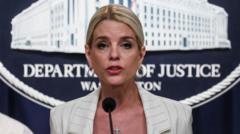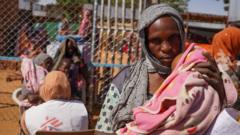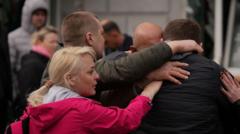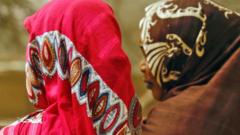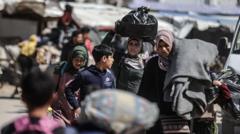The M23 rebel group has intensified its campaign in eastern DR Congo, leveraging ethnic discrimination against Tutsis to galvanize support while simultaneously facing allegations of war crimes. As the humanitarian crisis unfolds, divergent perspectives reveal a complex interplay between ethnic identity, historical injustices, and the pursuit of mineral wealth.
Tensions Rise in DR Congo as Rebels Exploit Ethnic Discrimination Against Tutsis
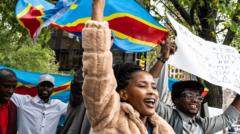
Tensions Rise in DR Congo as Rebels Exploit Ethnic Discrimination Against Tutsis
The M23 rebel group exploits historical discrimination towards Tutsis in DR Congo, amid rising tensions and allegations of war crimes.
The ongoing unrest in the eastern Democratic Republic of Congo (DRC) has spotlighted the actions of the M23 rebel group, which claims to fight for the better treatment of ethnic Tutsis, often alleging they face systemic discrimination. This narrative, however, is complicated by reports of heinous acts committed by the group, including sexual violence and civilian murders, prompting sanctions from bodies like the UN and the US against M23 leaders.
The situation surrounding the Tutsi ethnic group—comprised of Congolese Tutsis and the Banyamulenge sub-group—is fraught with historical tensions and violence. Despite claims from the M23 that it represents the Tutsis' interests, regional analysts posit that the group is more focused on tapping into the rich natural resources of eastern DRC rather than genuinely defending Tutsi communities. Among the Tutsi populace are many who oppose the M23’s fight, indicating a fracture within the very community the rebels purport to support.
The experiences of individuals within the Tutsi community paint a grim picture of the discrimination they face. Bukuru Muhizi, a researcher, recounted tragic personal losses inflicted by Congolese armed forces, illustrating the violent consequences of ethnic identity. Meanwhile, Muragwa Cheez Bienvenue, a Banyamulenge activist, described experiences of harassment and extortion at the hands of airport officials due to their perceived Tutsi identity, despite his family's long-standing presence in the region.
Historically, ethnic divisions between Tutsis and Hutus have intensified in the region, traced back to colonial borders that divided the kingdom of Rwanda. Post-colonization, waves of Tutsi migrants arrived in DRC from Rwanda and Burundi, especially after the Rwandan genocide in 1994, leading to further dynamics that complicated their identity as "foreigners" in the DRC.
Despite constitutional recognition of Tutsis as Congolese citizens, systemic discrimination continues. Reports highlight the existence of a hostile narrative against Tutsis, with observers noting the resurgence of anti-Tutsi sentiments coinciding with periods of unrest, such as the current M23-led turmoil.
While President Félix Tshisekedi has acknowledged the discrimination faced by the Tutsi community, government officials often downplay allegations of widespread persecution, attributing conflicts to local tribal dynamics, rather than ethnic discrimination. Yet, personal testimonies, like those from Bienvenue, emphasize the persistent and deep-rooted discrimination faced by the Banyamulenge throughout generations.
The plight of the Tutsi community in DR Congo, framed by a mixture of complex historical narratives and current events, continues to serve as a focal point for understanding the larger socio-political chaos in the region. The humanitarian impact of the M23 uprising raises significant questions about the future of ethnic identities in the DRC and the ongoing struggle for recognition and rights amid conflict.




